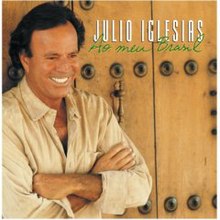
Roberto Carlos Braga is a Brazilian singer-songwriter, also known as "King of Latin Music" or simply "the King". Most of his songs were written in partnership with his friend, singer and songwriter Erasmo Carlos. Roberto Carlos has sold over 70 million albums around the world. He is considered one of the most influential artists in Brazil, being cited as a source of inspiration by many artists and bands. His net worth is estimated at US$160 million.
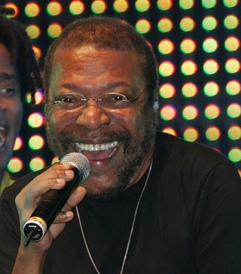
Martinho da Vila is a Brazilian singer and composer who is considered to be one of the main representatives of samba and MPB. He is a prolific songwriter, with hundreds of recorded songs across over 40 solo albums. He also has many songs that were recorded by singers from different musical genres.
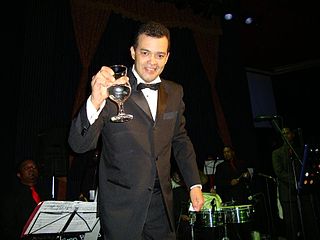
Alex Bueno, originally born as Alejandro Wigberto Bueno López, is a singer and guitarist from the Dominican Republic, specializing in merengue and bachata music, but also having ties in salsa, bolero, merengue típico, ballad and more. He broke out onto the scene in his early life and has been on the Dominican music scene for over 40 years. Having been an artist for so long, he has amassed a large fanbase in the Dominican Republic.

The 4th Annual Latin Grammy Awards were held in Miami at the American Airlines Arena on Wednesday, September 3, 2003. It was the first time the telecast was held outside of Los Angeles. Juanes was the night's biggest winner winning a record five awards including Album of the Year. He tied his own record winning five awards again five years later in 2008. Juan Luis Guerra and Calle 13 also tied this record in 2007 and 2009 respectively.

The 5th Annual Latin Grammy Awards were held on Wednesday, September 1, 2004, at the Shrine Auditorium in Los Angeles.

Jessé Gomes da Silva Filho, known professionally as Zeca Pagodinho, is a Brazilian singer-songwriter working in the genres of samba and pagode.

The 7th Annual Latin Grammy Awards were held for the first time in New York City, NY. The awards show was held at Madison Square Garden on Thursday, November 2, 2006. Shakira was the big winner winning Album of the Year, one of four awards that she won. She is the first female artist to win Record of the Year, Album of the Year, and Song of the Year.

Katia Guerreiro is a South African-born Portuguese fado singer, who has released eight albums and has received several awards, including Order of Arts and Letters, Chevalier rank, from the French government and the Order of Prince Henry from the President of Portugal.

The 9th Annual Latin Grammy Awards took place on Thursday, November 13, 2008, at the Toyota Center in Houston, Texas and were aired on Univision. The Brazilian Field awards were presented on the same day at the Ibirapuera Auditorium in São Paulo. The Latin Recording Academy Person of the Year was Gloria Estefan. Juanes was the night's big winner, winning 5 awards including Album of the Year. He now has 17 Latin Grammy awards which is more than any other recording artist. The show was watched by an average of 5.8 millions.

Pro-Música Brasil (PMB), previously Associação Brasileira dos Produtores de Discos (ABPD), is an official representative body of the record labels in the Brazilian phonographic market.
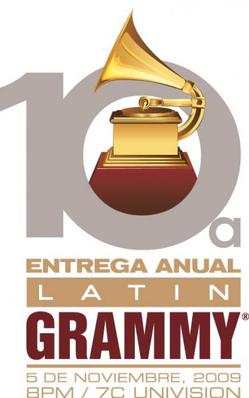
The 10th Annual Latin Grammy Awards took place on Thursday, November 5, 2009, at the Mandalay Bay Events Center in Las Vegas, Nevada. This was the second time the show took place in Las Vegas. Juan Gabriel was honored as the Latin Recording Academy Person of the Year on November 4, the day prior to the telecast. Calle 13 were the big winners, winning five awards including Album of the Year. 2009 marked the tenth anniversary of the Latin Grammy Awards.
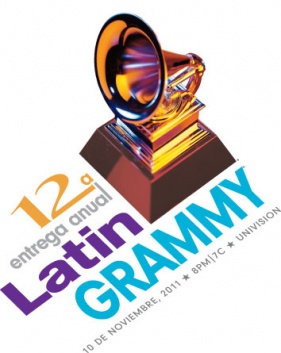
The 12th Annual Latin Grammy Awards was held on Thursday, November 10, 2011, at the Mandalay Bay Events Center in Las Vegas and was hosted by Lucero and Cristián de la Fuente. The eligibility period for recordings to be nominated is July 1, 2010 to June 30, 2011. The show will be aired on Univision.

The 13th Annual Latin Grammy Awards was held on Thursday, November 15, 2012 at the Mandalay Bay Events Center in Las Vegas, Nevada. It was the fifth time the awards was held at this venue and in Las Vegas. It also marks the last year in the Latin Recording Academy's contract where the Mandalay Bay Events Center hosted. It is unknown if the awards will continue to be held at this location beyond 2012.

The 14th Annual Latin Grammy Awards was held on Thursday, November 21, 2013, at the Mandalay Bay Events Center in Las Vegas. This was the sixth time that Latin Grammys has been held at this location. The main telecast was broadcast on Univision at 8:00 PM EST.
"Obsesión" is a 1935 Spanish-language bolero song by Puerto Rican songwriter Pedro Flores. The song is one of Flores' best known has been recorded by many artists. Flores was resident in New York where his Cuarteto Flores, including Panchito Riset and Daniel Santos, made his boleros popular.

The 15th Annual Latin Grammy Awards was held on November 20, 2014 at the MGM Grand Garden Arena in Paradise. This was the first time that Latin Grammys has been held at this location. The main telecast was broadcast on Univision at 8:00PM EST.
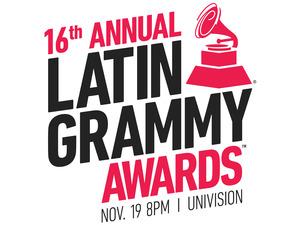
The 16th Annual Latin Grammy Awards were held on November 19, 2015 at the MGM Grand Garden Arena in Paradise. This is the second time that Latin Grammys will be held at this location, will be broadcast live on the Univision Network from 8–11 p.m. ET/PT.

The 17th Annual Latin Grammy Awards were held on November 17, 2016 at the T-Mobile Arena in Paradise, Nevada.

"Agua Dulce, Agua Salá" is a song from Spanish singer Julio Iglesias's studio album La Carretera (1995). The song was written by Estéfano, Donato Poveda, and Hal Batt and produced by Ramón Arcusa. It was released as the lead single from the album in 1995. A rumba flamenca, the song deals with the theme of life. The song received positive reactions from music critics, mostly being found catchy by them. It was a recipient of the ASCAP Latin Award in 1996. Commercially, the song peaked at number three on the Hot Latin Songs chart and number one on the Latin Pop Airplay chart in the United States. A music video for the song was filmed in Spain and features Fabiola Martinez. Iglesias also recorded it in Portuguese as "Água Doce, Água do Mar" for his studio album Ao Meu Brasil (2000).
